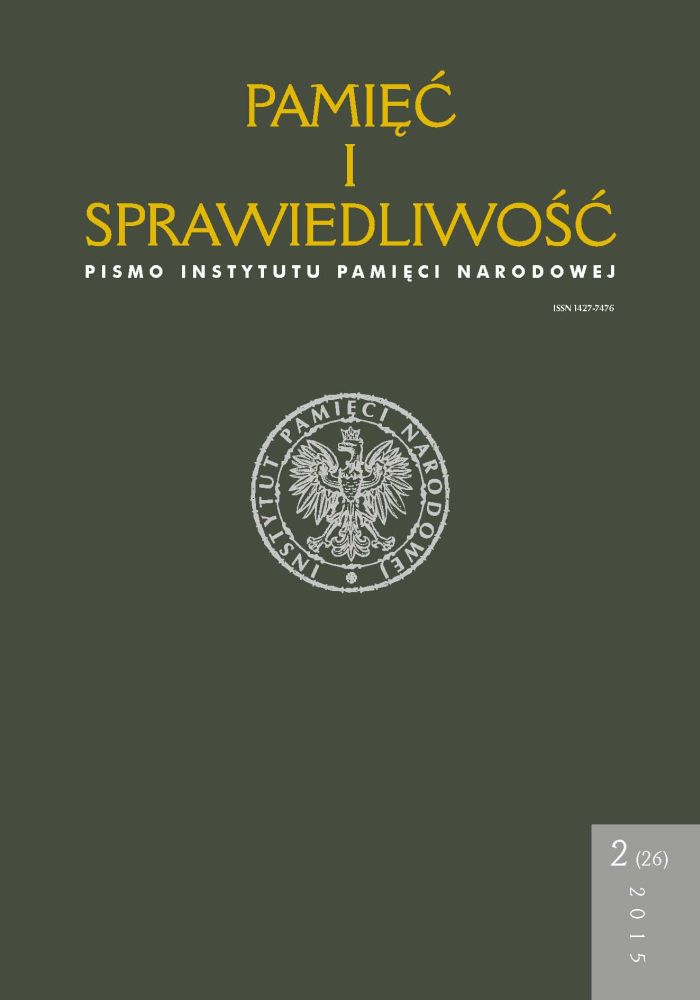„Kto pragnie Polski silnej i szczęśliwej – głosuje na kandydatów Frontu Narodowego”. Wybory do Sejmu PRL z 26 października 1952 roku
“Who wants a strong and happy Poland – votes for the candidates of the National Front”. Elections to the PRL’s Sejm of 26 October 1952
Author(s): Robert SkobelskiSubject(s): Political history, Social history, Post-War period (1950 - 1989)
Published by: Instytut Pamięci Narodowej
Keywords: Sejm of the PRL; elections; electoral law; propaganda campaign; coercive apparatus; social resistance
Summary/Abstract: The elections to the Sejm of the People’s Republic of Poland were held at a time when the PZPR was already an undivided ruler in a state that was formed according to Stalin’s model. In such circumstances, the vote could not of course comply with any democratic standards. Bizarre rules of electoral law, an excess of propaganda typical for the Stalinist era, and the key role of an extensive coercive apparatus have all become essential components of the electoral play, which – along with the constitution adopted a few months before – became a certain culmination of several years of ongoing processes. However, even a multi-dimensional and total pressure of the state could not completely eliminate the symptoms of civil rebellion, which appeared during the campaign and the elections not only among groups traditionally opposed to communists, but even in the ranks of the authority’s representatives (in the police or the army). The vast majority of cases of opposition was not, however, radical in nature, and was limited to tearing down posters or painting unsympathetic slogans on walls. The majority of the society was already passively accepting the actions of the authorities, treating them as a necessary evil that one has no influence on. The level of fear of repression that could be imposed for even a small sign of opposition or criticism towards the actions of the state was also important. In this context, people who – despite the risk – decided to create anti-election flyers, boycott the vote or only “occupy” the cabins at polling stations deserve recognition. On the other hand, one should note the existence of groups that received the propaganda of the authorities positively (even though they knew it was distorting reality) and accepted the prevailing systemic order, which guaranteed, for example, free education at all levels and opportunities for promotion, especially for people associated with the party. For the representatives of this group, the parliamentary elections were the next step in strengthening the gains of socialism and stabilising their own position. However, the ruling camp had no intention to abandon the opportunity to fake the results and voter turnout, but it is difficult to ascertain the scale of this phenomenon, or even its extent. In line with the experiences of the previous vote in 1947 – the potential fabrication was probably done at the lowest level of individual polling stations (hence the accurate, actual results of the elections are unlikely to be determined). At the central level, on the other hand, according to the virtually unverifiable account of Józef Światło, a special group within the Ministry of Public Security was tasked with fabricating electoral data, headed by colonels Anatol Fejgin and Michał Taboryski, which was to forge protocols from regional electoral commissions and pass them to Bierut’s closest associates. The fact remains that the election of 1952 was the only such election in the post-war history of Poland between 1947 and 1989, both in terms of scale and intensity of propaganda activities, as well as various forms of the authorities’ pressure on society (in particular – coercive measures). The later votes were of a different nature, which of course did not question the assumptions of the prevailing political system – based on the hegemony of the PZPR – at all. In January 1957 the Sejm was elected under conditions changed by the “thaw” and to a certain extent – in reaction to the experiences from four years back; the differentiator of the elections held then could primarily be found in the new electoral law and elements of an actual election campaign – uncontrolled by the authorities. The votes in the subsequent years took place in less tumultuous circumstances and under complete control of the ruling camp, but – unlike in 1952 – without such aggressive agitation and pressure imposed by the state.
Journal: Pamięć i Sprawiedliwość.
- Issue Year: 28/2016
- Issue No: 2
- Page Range: 451-484
- Page Count: 34
- Language: Polish

